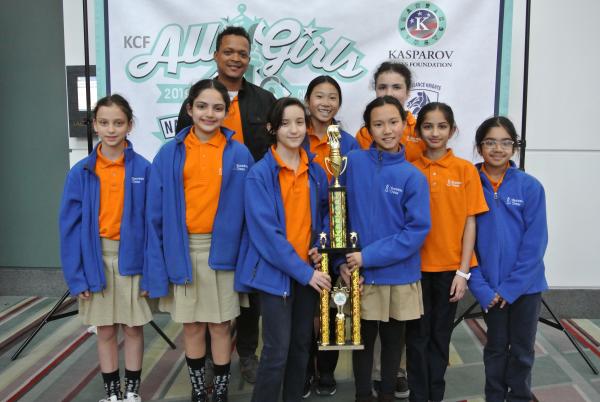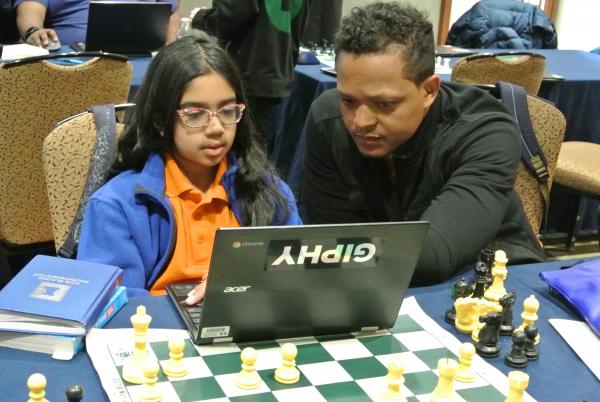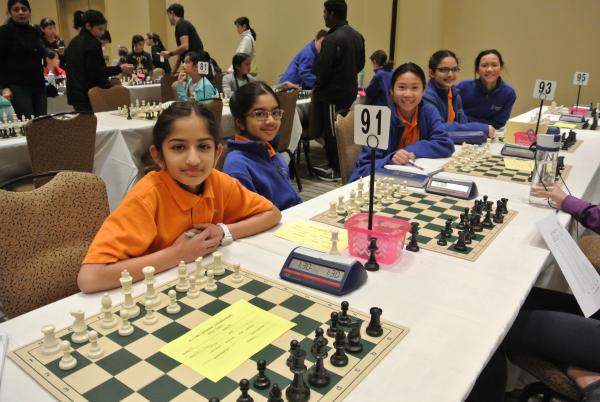KID REPORTERS’ NOTEBOOK
Girls Compete in National Chess Tournament


Maya (far right) in Chicago with her Success Academy teammates and coach, Christopher Johnson
This spring, I traveled with my chess team and our coach and teacher, Christopher Johnson, to the All-Girls Nationals in Chicago, Illinois. The annual event, now in its 14th year, is sponsored by the Renaissance Knights Foundation, which seeks to bring the academic and social benefits of chess to kids and adults across the country.
“What I love most about coaching chess is interacting with students in a fun way, while at the same time watching them grow as players and as people,” Johnson told me.
Johnson coaches the chess team at Success Academy Hudson Yards Middle School in New York City, which I attend. Working with girls to hone their strategic skills, he said, empowers them to play chess in an environment where they feel confident and can shine.
“Learning chess definitely teaches students how to think ahead,” Johnson added, “using their current resources [position on the chessboard] to get what they want in life.”

Maya’s coach helps her strategize during the chess competition in Chicago.
ENCOURAGING GIRLS TO PLAY
Chess is popular with people of all ages around the world. Children can be highly rated champions, even beating adults with an international reputation.
But nearly all grandmasters [chess players of the highest caliber], including Magnus Carlsen, the reigning world champion, are men. Many girls shy away from chess or don’t take the opportunity to compete in tournaments, as boys do.
The All-Girls Nationals is seeking to change this. Johnson believes that he is doing his part to encourage the effort. “I don’t think girls are oppressed in chess, but there is a huge gender imbalance with players,” he said.
At the Nationals, girls can compete and encourage each other to excel. The role models at the competitions are strong, inspiring women.

Maya and her teammates at the All-Girls Nationals, an annual chess tournament
A FEMALE GRANDMASTER
Judit Polgár, a female grandmaster from Hungary, grew up watching her sisters play chess. Intrigued and wanting to learn more about the game, she studied hard. Soon, she surpassed her family members.
Polgár later went on to defeat many male grandmasters and become one of the best female chess players in the world. Women and girls who play the game look up to her. But she does not play in women’s tournaments herself, preferring to compete against men and boys as an equal.
The All-Girls Nationals is building girls’ self-esteem and creating more role models like Polgár. Girls who do not become grandmasters can still benefit tremendously from their competitive experiences.
“It’s very important for girls to continue playing chess because of the outside mental benefits of playing and learning the game,” Johnson said. “The biggest benefit that stands out to me is learning how to perform under pressure, which can be useful in all aspects of life.”
